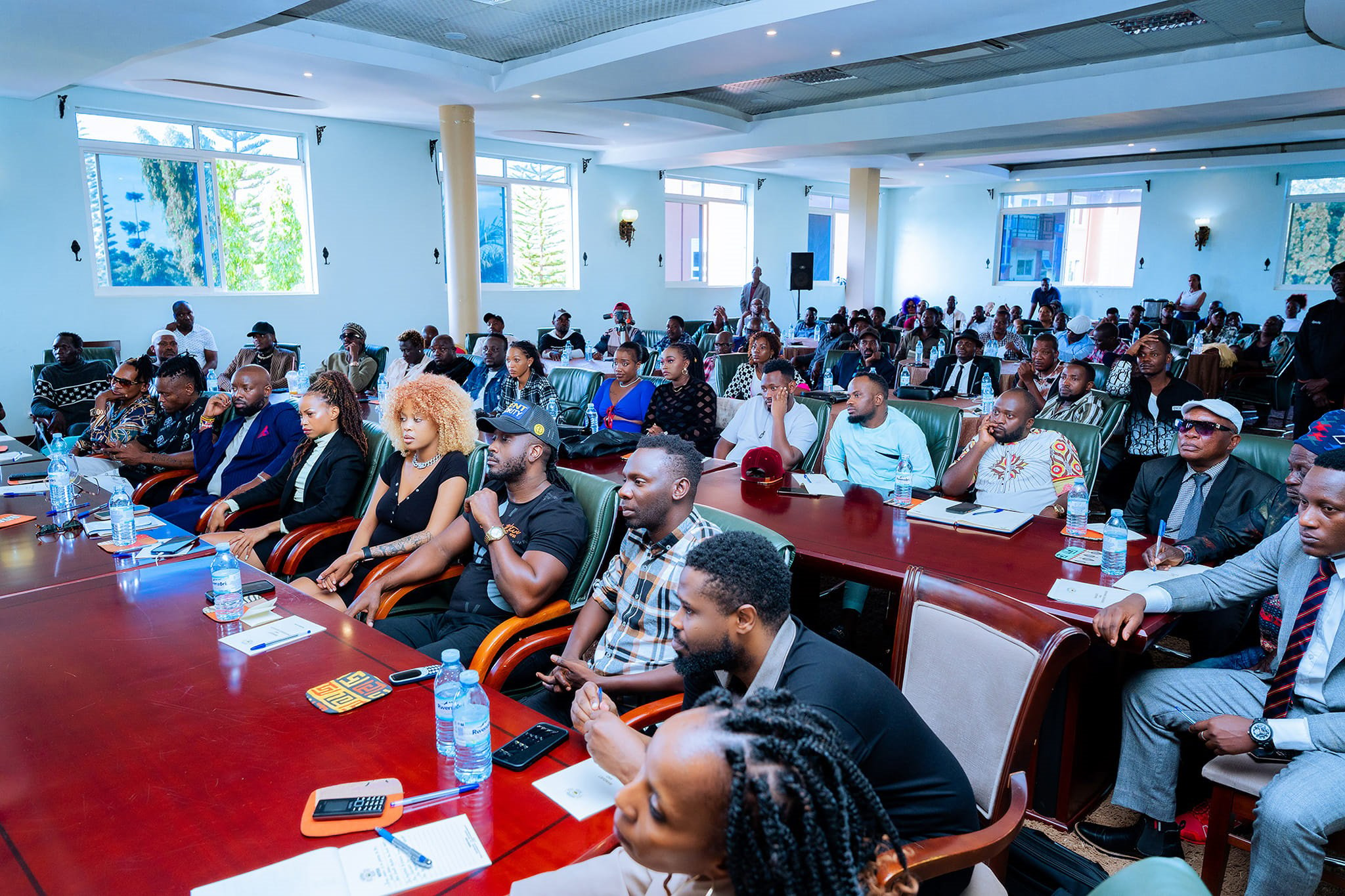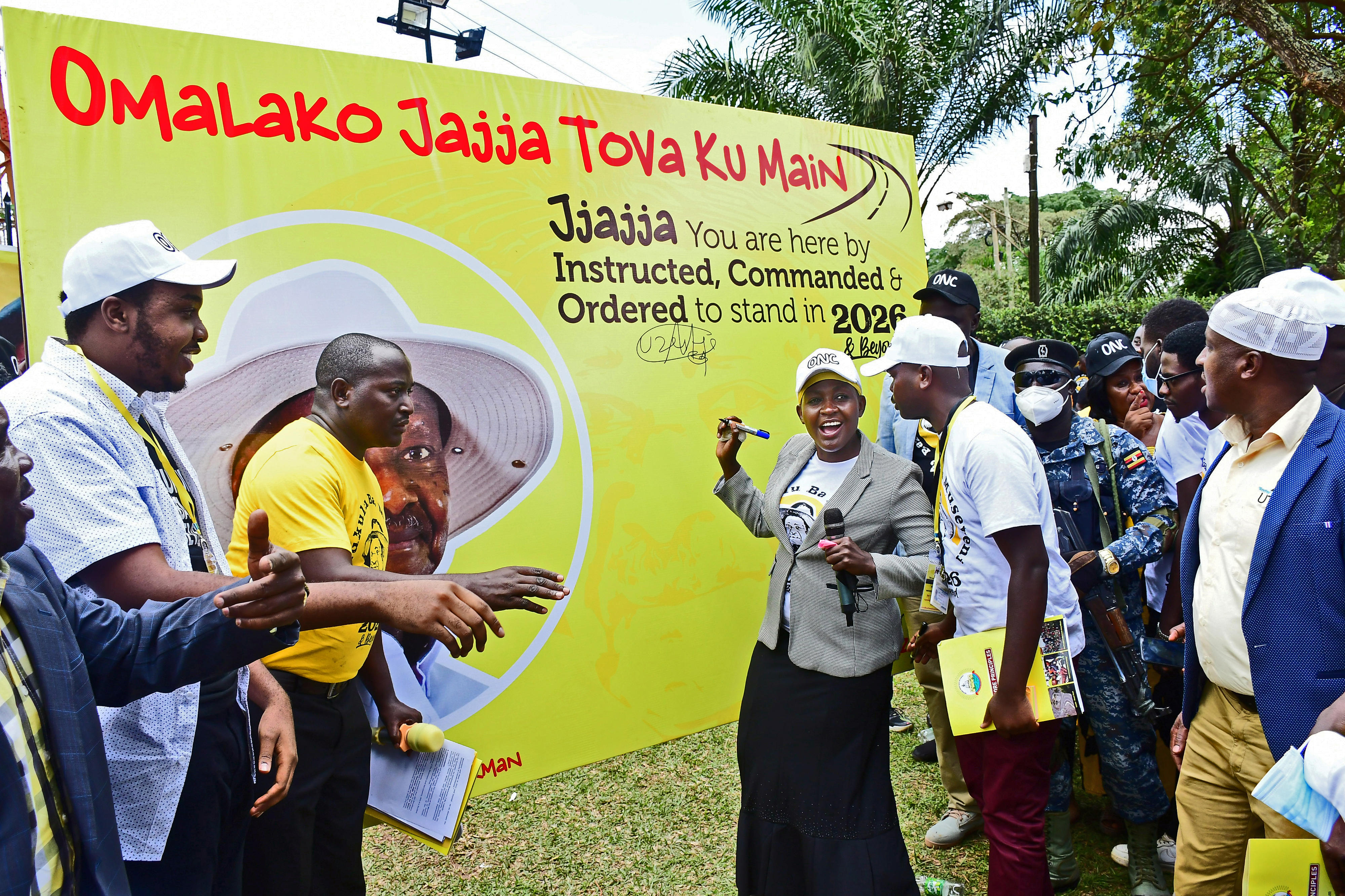Prime
Why local artistes want copyright laws changed

Members of the Uganda National Musicians Federation during their inaugural leadership meeting in Kampala last month. PHOTO/FILE
What you need to know:
- Demand for exclusive and assignable legal right for musical works among Ugandan creatives is taking shape as artistes continue to demand for a strong law on copyright. In this explainer, Gabriel Buule explores claims by artistes that they are being shortchanged.
Do Ugandan music artistes get music royalties?
Yes, but they are paltry. On June 15, singer Angella Katatumba revealed on her social media platforms that the Uganda Performing Rights Society (UPRS) had wired Shs102,933 to her account. The music royalties, she added, covered the start of her music career to date.
“I started my Ugandan music career while in university in the UK and continued when in the US, while flying back and forth on holiday to date,” Ms Katatumba shared, adding that the “numerous hits” she has tucked under her belt must have guaranteed a bigger payday.
So who is to blame for the mess?
Ms Katatumba’s exasperation captures how the change in consumption of music over the past decades merits a reconsideration of how to interpret Uganda’s copyright law. Another school of thought led by singer Edrisa Musuuza, alias Eddy Kenzo, recommends a reconstruction of the copyright law. They further contend that the law needs to move with the times. Per Eddy Kenzo and others, Uganda’s intellectual property laws are not alive to the rise of streaming on platforms like Spotify and YouTube, as well as the changes around how music is made nowadays. This has ultimately whittled down the size of the music royalties.
Are Uganda’s intellectual property laws punitive enough?
Not as per Ragga Dee. The artiste-cum-politician does not mince his words while declaring that the laws prescribe light punishments for copyright offenders. He protests, “You cannot say when someone infringes on my song, we go to court and he is fined Shs1 million yet today you can spend more than Shs20 million on [putting together] just one song.”
So what needs to be tweaked?
Last July, Parliament granted leave to Mawokota North MP Hilary Kiyaga, alias Dr Hilderman, to draft the Copyright and Neighbouring Rights Amendment Bill. While the Bill is yet to be discussed in Parliament, Ragga Dee—who is also the chairman of National Cultural Forum (NCF)—has identified a private copying levy as one of the missing pieces in the jigsaw that needs to be introduced to the law to curtail piracy. Also known as blank media tax, the levy sets out to tax blank media to compensate writers and artistes for the losses suffered as a result of others making copies of their music and films for their private use.
“Germany introduced a tax on blank media in the 1960s, which worked well. We believe it is not too late for Uganda to put a levy on memory cards, CDs, flash disks, hard drives and other music storage media to compensate musicians who lose a lot in music that is acquired at no cost,” Ragga Dee said, adding that, with the advent of the audio cassette, legislators in Germany came to the conclusion that cassette recorders would decimate sales of records as friend after friend would make copies of only one purchased album.
Ragga Dee also reckons that besides encouraging legal music file sharing, the private copying levy will reduce the burden of non-compliant illegal music distributors who are sometimes hard to trace.
Is a private copying levy the proverbial silver bullet?
Singer Wycliff Tugume, alias Ykee Benda, argues that private copying levies are a vital source of income for creators and rights holders across the world. He adds that any move to add a blank media tax will open doors for content creators. One of the areas that is believed to be teeming with rich potential is that of caller ring back tones or CRBTs.
Recently, singer Sheebah Karungi decried the revenue split from CRBTs. She said, “Our neighbouring countries like Kenya are giving their artistes 52 percent off their royalties yet we are being given 1.8 percent, which has never been paid for almost the last 20 years.”
Her claims were echoed by Eddy Kenzo, who shared that the musicians have been taken advantage of and are receiving the least percentage from their own works.
What is a CRBT?
Mr Charles Batambuze, NCF’s vice chairperson, explains that a CRBT is the audible indication heard by the calling party while waiting for their call to be answered by the called destination. It can, he adds, be a song, voice, poem or any piece of audio work that is pre-set by a telecom company.
Mr Batambuze notes that until a particular piece of work is commissioned and owned by a telecom company, cell phone carriers or telecom firms have to pay copyright royalties each time a customer uses a ringtone.
“Ringtones are derivative works of art and, by using any, you’re infringing on private copyright, which means the copyright owners are entitled to royalties,” he explains, adding that there is an unfair revenue sharing process in the CRBT business because there is no clear legal instrument to address the matter.
He further offers thus: “Aggregators and telecoms are thriving on government’s reluctance and the ignorance of artistes. The copyright law must address the issue of CRBT’s and NCF has already shared a report with the relevant authorities.”
As per Mr Batambuze, each CRBT costs Shs700. The split sees the government take Shs350 (50 percent); telecoms Shs245 (35 percent); and the aggregator Shs92.4 (13.2 percent). This leaves the musician with a paltry 1.8 percent or Shs12.6 before tax.
What intellectual property laws are in Uganda?
Uganda has a Copyright and Neighbouring Rights Act, 2006, and the Copyright and Neighbouring Rights Regulations of 2010. While the former provides for the protection of literary, scientific and artistic intellectual works, the latter addresses itself to neighbouring rights while providing for other related matters, procedures, as well as fees payable.
READ: Understanding music rights under copyright
Artiste Daniel Kazibwe, alias Ragga Dee, for instance, insists that the Copyright and Neighbouring Rights Act, 2006 ought to be updated to reflect changes in the creatives industry. He told Saturday Monitor thus: “Previously, music distribution was glued to tapes and radio cassettes mattered so much. But today, music is on various mediums, which makes the fight against piracy difficult. Adjustments must be done to harmonise the law in relation to the current trends.”




